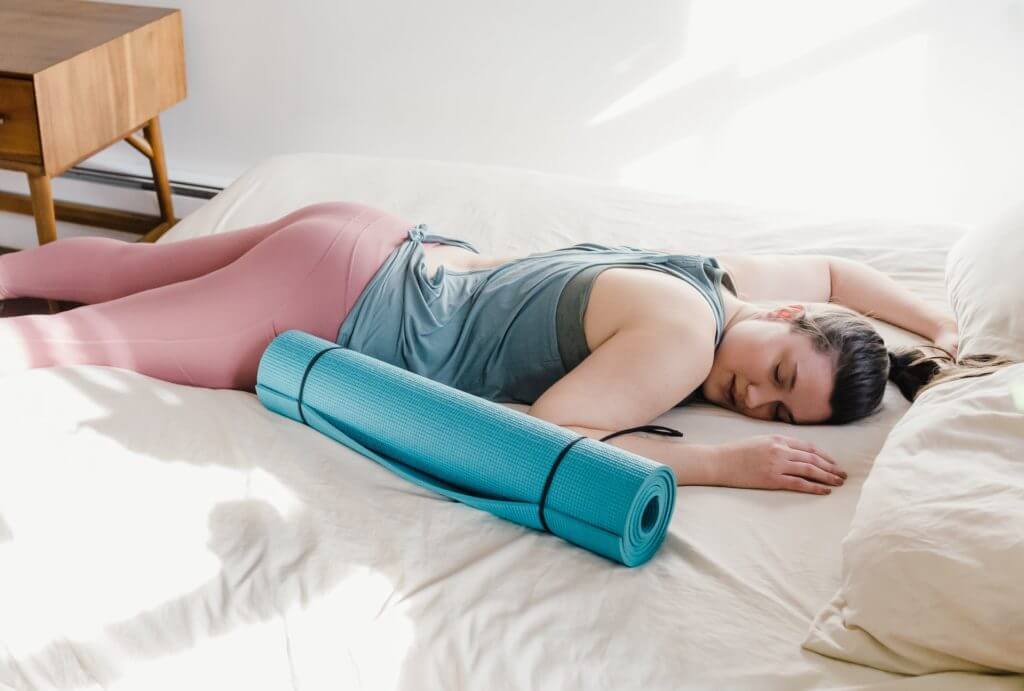LONDON — Countless studies point to the importance of keeping one’s body moving as a means of maintaining a strong mind and sharp cognition well into old age. However, noteworthy new research out of the United Kingdom suggests night owls and insomniacs may not reap the same cognitive benefits, regardless of how hard they work in the gym.
Scientists at University College London report the protective cognitive effect of exercise may be diminished for people who are not getting enough shut eye. Researchers assessed cognitive function over the span of a decade among 8,958 older adults (ages 50 and older) in England. Study authors wanted to assess how different combinations of sleep and physical activity habits may affect cognitive function over time.
Ultimately, this approach led to the finding that those who were more physically active but had shorter sleep durations (less than 6 hours on average) displayed faster overall cognitive decline. That means that after 10 years had passed their cognitive function was about equal to their age peers who performed less physical activity.
“Our study suggests that getting sufficient sleep may be required for us to get the full cognitive benefits of physical activity. It shows how important it is to consider sleep and physical activity together when thinking about cognitive health,” says lead author Dr. Mikaela Bloomberg (UCL Institute of Epidemiology & Health Care) in a university release.
“Previous studies examining how sleep and physical activity might combine to affect cognitive function have primarily been cross-sectional – only focusing on a snapshot in time – and we were surprised that regular physical activity may not always be sufficient to counter the long-term effects of lack of sleep on cognitive health.”

In agreement with prior studies, researchers also note that sleeping between six and eight hours per night, as well as more physical activity, were both linked to better cognitive function. Participants who had been more physically active also displayed stronger cognitive functions – regardless of how long they slept at the beginning of the study. This shifted, however, over the course of the decade-long study period; more physically active short sleepers (less than six hours) reported experiencing more rapid cognitive decline.
This rapid decline held true among those in their 50s and 60s in this cohort, but among older adults (ages 70+), cognitive benefits linked to exercise seemed to remain, despite shorter sleep durations.
“It is important to identify the factors that can protect cognitive function in middle and later life as they can serve to prolong our cognitively healthy years and, for some people, delay a dementia diagnosis,” explains study co-author Professor Andrew Steptoe (UCL Institute of Epidemiology & Health Care).
“The World Health Organization already identifies physical activity as a way to maintain cognitive function, but interventions should also consider sleep habits to maximize long-term benefits for cognitive health.”

To conduct this research, the team at UCL made use of data from the English Longitudinal Study of Aging (ELSA), a nationally representative cohort study of the English population. Participants were asked how long they usually slept on an average weeknight, and were then separated into three sleep groups: short (less than 6 hours), optimal (6 to 8 hours), and long (greater than 8 hours).
Participants were also provided with a score based on their frequency and intensity of self-reported physical activity, and subsequently divided into one of two groups: more physically active (the top third of scorers) and less physically active (the other two thirds). Cognitive function, meanwhile, was measured on the basis of an episodic memory test (participants were asked to recall a 10-word list, both immediately and then after a delay) and a verbal fluency test (participants were asked to name as many animals as they could in 60 seconds).
Researchers were also sure to adjust for many confounding factors. Examples of such factors include participants having done the same cognitive test at an earlier date. Study authors also excluded those with self-reported dementia diagnoses and those whose test scores indicated some level of cognitive impairment. This was done to ensure any behavior changes linked to preclinical Alzheimer’s disease (such as sleep disturbance) did not inadvertently influence the findings.
This project did have a number of limitations. Researchers admit they relied solely on each person self-reporting their sleep duration and physical activity. Moving forward, study authors would like to repeat this work with diverse study populations. Future studies should also examine more cognitive domains and more domains of sleep quality and use objective measures like wearable physical activity trackers.
The study is published in The Lancet Healthy Longevity.
You might also be interested in:
- Dogs with dementia deal with poor sleep — just like humans
- Deep sleep can protect older adults from Alzheimer’s-related memory loss
- Can’t reach your diet and exercise goals? Bad sleep may be to blame

